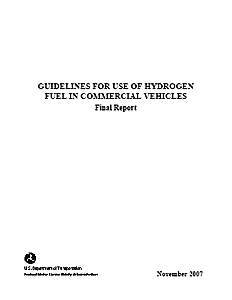 I’ve talked about run your car on water systems many times over the past few months. The critics say that this hydrogen on demand technology simply cannot work. In the past few days I’ve come across a document by the U. S. Department of Transportation (DOT) stating that the critics are wrong.
I’ve talked about run your car on water systems many times over the past few months. The critics say that this hydrogen on demand technology simply cannot work. In the past few days I’ve come across a document by the U. S. Department of Transportation (DOT) stating that the critics are wrong.
Yes, the DOT report, which is about the safe handling of hydrogen, states that “hydrogen injection” as they call it does reduce emissions and increase gas mileage. The DOT document named “GUIDELINES FOR USE OF HYDROGEN FUEL IN COMMERCIAL VEHICLES Final Report” is 94-pages beginning to end and primarily covers safety issues when handling hydrogen.
The report talks mostly about fuel cell cars or vehicles with internal combustion engines that run on compressed hydrogen gas or liquid hydrogen. It does, however, also give some room to cover hydrogen injection systems (focused on diesel engines) including the electrolysis of water.
According to the U. S. Department of Transportation, “A hydrogen injection system for a diesel engine produces small amounts of hydrogen and oxygen on demand by electrolyzing water carried onboard the vehicle. The electricity required is supplied by the engine’s alternator or 12/24-volt electrical system (see Section 1.5 for a description of electrolysis). The hydrogen and oxygen are injected into the engine’s air intake manifold, where they mix with the intake air.”
Of course there are more lengthy passages, way too long to publish here. The DOT document focuses on run your car on water technology for diesel engines since this has been more widely developed and publicly acknowledged for use with long haul trucks.
But, the same technology is now also being used in cars. Many people are buying water car eBooks that explain how to build your own hydrogen generator for their own personal cars and some have even developed the building of hydrogen injection units into thriving businesses.
The point is that government acknowledgement of this emerging run your car on water technology is a good first step. No longer can there be a valid argument on whether or not this technology works. The only real question is “How well can I get it to work?”